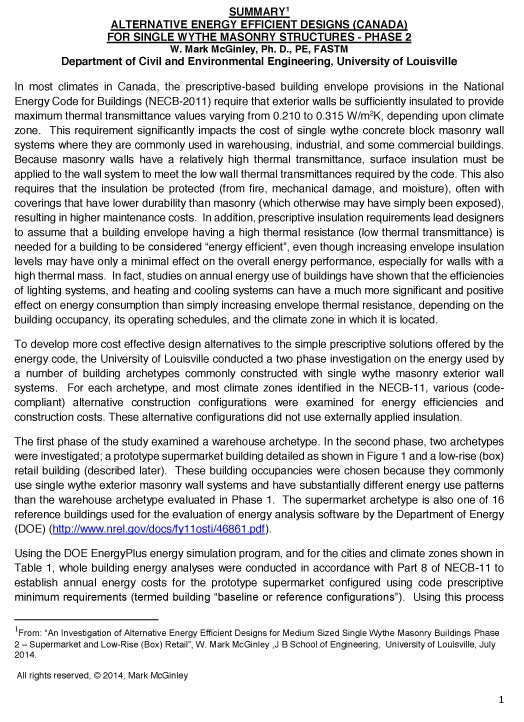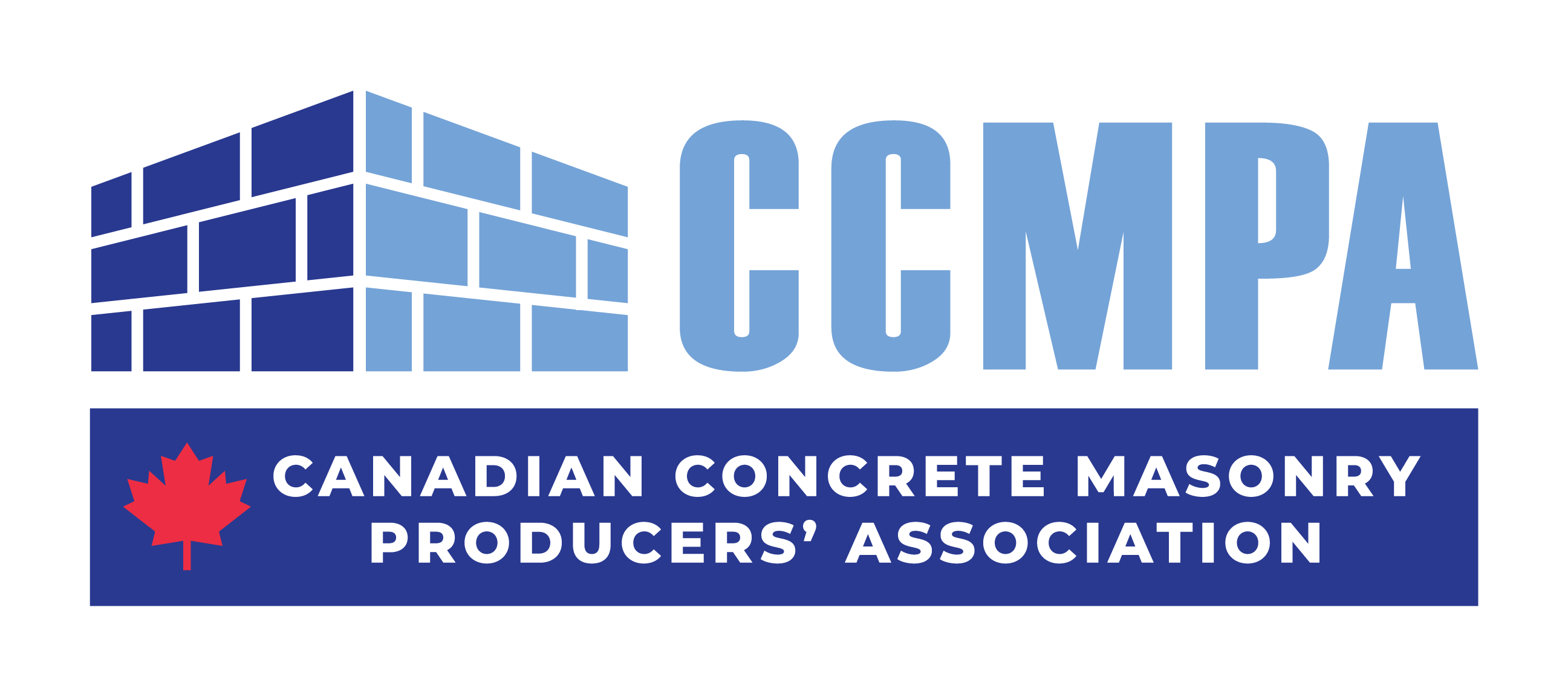Want to save energy AND building construction costs?

Then build with single wythe concrete block masonry!
NECB Energy Compliant Solutions using Single Wythe Concrete Block Construction
Buildings constructed with single wythe concrete block masonry walls easily can be shown to satisfy the “Building Energy Performance Compliance” path of the 2010 NECB (National Energy Code for Buildings)…and without need to add expensive surface insulating materials! Of course, energy trade-offs are required, much like those needed to demonstrate use of glass curtain wall systems for high-rise buildings.
Whole building energy performance studies were recently completed at the University of Louisville using EnergyPlus software. U.S. DOE (Department of Energy) warehousing, supermarket, and box retail archetypes were modelled for energy use in all climate zones in Canada. By using the Part 8 requirements of the NECB, code compliance was demonstrated for all archetypes in all climate zones simply by filling the otherwise voided cells of grouted/reinforced 20 cm concrete block walls with foam insulation, and by using energy efficient LED lighting. No surface insulation is required for the block masonry walls, and no other trade-offs are needed. And significant yearly energy cost savings and construction cost savings are shown for these buildings in all climate zones when compared against their respective baseline reference building prescribed by the NECB. The study showed that the FDWR trade-off permitted under Part 8 is a powerful tool. It allows the FDWR of the reference building model to be increased to the maximum FDWR allowed under Part 3, with the FDWR of the proposed building to be retained at its (lesser) design ratio.
Concrete block masonry continues to be the wall construction of choice for warehousing, industrial buildings, and large retail structures. Owners prefer concrete block masonry because it offers the properties and performance that best satisfy the inherent demands imposed by the uses of these structures. Single wythe concrete block masonry walls offer superior sound performance, durability and low maintenance costs, resistance to impact, property and personal protection, and superior fire performance. And the Louisville energy study shows that there’s no reason to compromise these attributes in order to meet energy demands and construction budgets, and that energy code compliance and energy efficiency do not necessarily mean that high R-values are required for masonry walls.
The University of Louisville energy studies can be used by building owners, designers, and builders as guides to demonstrate and achieve cost-effective energy code compliance for buildings constructed with single wythe masonry walls.
Click here to obtain your free pdf copies of the reports from CCMPA.



